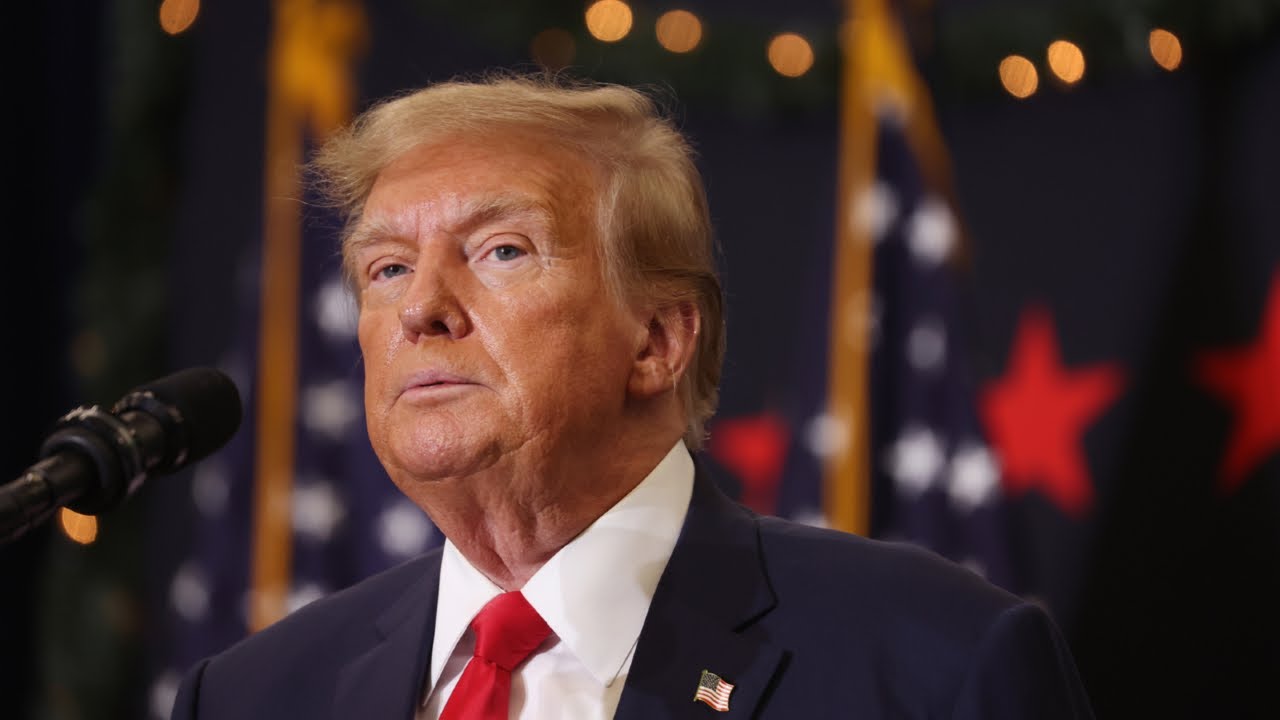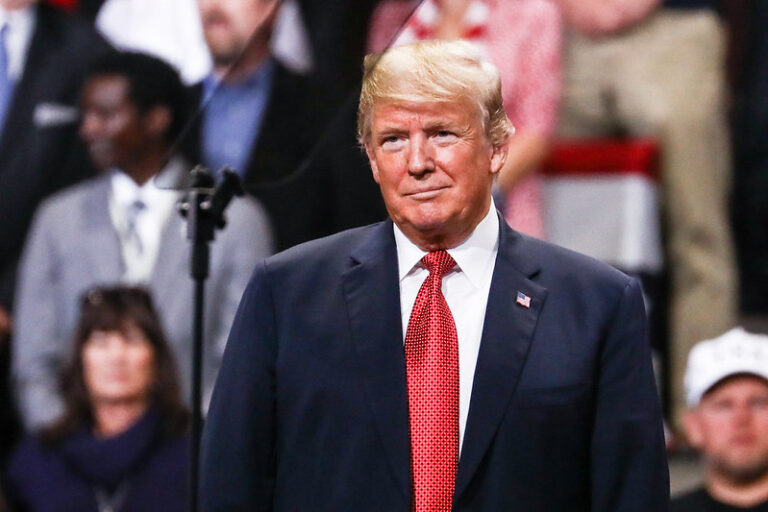The family of legendary singer-songwriter Isaac Hayes has taken legal action against President Trump, accusing him of unauthorized use of their patriarch’s iconic song “Hold On, I’m Coming” at his campaign rallies. This high-profile dispute sheds light on the complex intersection of politics, music, and intellectual property rights, raising questions about the boundaries of fair use and the importance of respecting artists’ legacies.
According to the family’s statements, Trump has been using the 1966 R&B hit “Hold On, I’m Coming” – written by Hayes and David Porter – at his campaign events between 2022 and 2024 without obtaining the necessary permissions or licenses. This revelation came to light when Isaac Hayes III, the son of the late musician, took to social media to share a cease-and-desist letter sent to Trump’s presidential campaign.
Late singer and songwriter Isaac Hayes Estate has filed a demand for Trump to stop playing his favorite song that he dances to at rallies, and pay $3 Million for illegally using the song over 100 times. pic.twitter.com/3cCgf6JlmQ
— Parthiban Shanmugam (@hollywoodcurry) August 12, 2024
The Cease-and-Desist Letter
In the strongly worded letter, the Hayes family, represented by their legal counsel, demanded that Trump’s campaign immediately cease the use of “Hold On, I’m Coming,” remove all related footage from their rallies and other promotional materials, and issue a public disclaimer acknowledging the lack of authorization. Furthermore, the family requested a substantial licensing fee of $3 million, warning that failure to comply would result in further legal action.
Trump’s History of Music Copyright Disputes
This is not the first time Trump has found himself embroiled in a music-related copyright controversy. In the past, Trump has faced backlash for using songs by artists such as Celine Dion and the Smiths without their consent. These incidents have highlighted the ongoing challenges faced by political figures in navigating the complex web of music licensing and intellectual property rights.
The Hayes family’s actions underscore the importance of respecting the intellectual property rights of artists, even for high-profile public figures like former presidents. Music, as a form of creative expression, holds significant cultural and historical value, and its unauthorized use can be perceived as a disrespect for the artist’s legacy and contributions to the industry.
Should the Trump campaign fail to comply with the Hayes family’s demands, the legal battle could escalate, potentially leading to substantial financial penalties and reputational damage. The family’s lawyers have emphasized that the requested $3 million fee is a “very discounted” amount compared to the potential damages that could be sought through litigation, which could reach up to $150,000 per unauthorized use.
The Broader Impact on Political Campaigns
This dispute also raises broader questions about the role of music in political campaigns and the need for greater awareness and adherence to copyright laws. As political candidates increasingly rely on popular songs to energize their supporters and create memorable moments, the potential for legal conflicts with artists and their estates has become a growing concern.
While the Trump-Hayes case is still unfolding, it can be viewed within the context of other high-profile instances where political figures have faced legal challenges over the unauthorized use of copyrighted music. These cases, such as the Village People’s cease-and-desist letter to Trump in 2023, have helped establish legal precedents and underscored the importance of securing proper licensing agreements.
The ongoing dispute between the Trump campaign and the Hayes family also reflects the evolving landscape of music licensing, where the lines between fair use and copyright infringement continue to be tested. As technology advances and the ways in which music is consumed and shared continue to change, the legal frameworks governing these issues are constantly being refined and reinterpreted.
The Potential Reputational Implications
Beyond the legal and financial ramifications, the Hayes family’s lawsuit against Trump also carries significant reputational risks for Trump. The allegations of disrespect and disregard for the intellectual property rights of a renowned artist like Isaac Hayes could further undermine Trump’s public image and his relationship with the music industry and its fan base.
In the wake of this dispute, there may be a growing call for greater collaboration and open communication between political figures and the music industry. By fostering a more constructive dialogue and establishing clear guidelines for the use of copyrighted material, both sides could potentially find mutually beneficial ways to leverage the power of music in political campaigns while respecting the rights and legacies of the artists.
The Lasting Impact on the Hayes Family’s Legacy
For the Hayes family, this legal battle represents an opportunity to safeguard the musical legacy of their patriarch, ensuring that his creative contributions are not exploited without their consent. By taking a stand against the unauthorized use of “Hold On, I’m Coming,” the family is not only protecting their intellectual property rights but also preserving the artistic and cultural significance of Isaac Hayes’ remarkable body of work.




Leave a Comment